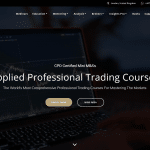Forex brokers play a crucial role in the foreign exchange market by acting as intermediaries between individual traders and the global currency markets. They provide platforms, pricing, and access that enable traders to buy and sell currency pairs. Understanding what forex brokers do helps traders choose the right broker and navigate trading effectively.
This article explains the functions of forex brokers, how they operate, and the services they provide.
Key Functions of Forex Brokers
- Market Access: Provide retail traders with access to currency markets through trading platforms like MetaTrader 4 (MT4), MetaTrader 5 (MT5), or proprietary software.
- Price Quotation: Supply real-time bid (sell) and ask (buy) prices for currency pairs based on interbank market rates and their own markup.
- Order Execution: Facilitate the buying and selling of currencies by executing client orders either internally or through external liquidity providers.
- Leverage Provision: Offer leverage allowing traders to control larger positions with a smaller amount of capital, amplifying both potential profits and risks.
- Account Management: Handle deposits, withdrawals, margin calls, and account balances.
- Customer Support: Provide assistance with technical issues, trading questions, and account management.
Types of Forex Brokers
1. Dealing Desk Brokers (Market Makers)
- Act as counterparties to client trades, often providing fixed spreads.
- May create a market internally and take the opposite side of trades.
2. No Dealing Desk Brokers (NDD)
- Pass orders directly to liquidity providers or the interbank market.
- Include STP (Straight Through Processing) and ECN (Electronic Communication Network) brokers.
How Forex Brokers Make Money
- Spreads: Difference between bid and ask prices.
- Commissions: Fees per trade, especially for ECN accounts.
- Swap Fees: Charged for holding positions overnight.
- Additional Fees: Inactivity fees, withdrawal fees, premium services.
Key Takeaways
- Forex brokers enable traders to participate in the global currency markets.
- Brokers provide pricing, order execution, leverage, and support services.
- Choosing between dealing desk and no dealing desk brokers affects spreads and execution.
- Brokers earn revenue primarily through spreads, commissions, and fees.
Frequently Asked Questions
What is the main role of a forex broker?
To provide traders access to forex markets and facilitate trade execution.
How do forex brokers make money?
Through spreads, commissions, swap fees, and service charges.
What is leverage offered by brokers?
Leverage lets traders control larger positions with a smaller deposit.
Are all forex brokers the same?
No, brokers differ by execution model, fees, platforms, and regulation.
Can I trade forex without a broker?
No, retail traders must use brokers to access the forex market.




Leave a Reply
Please log in or register to share your thoughts.